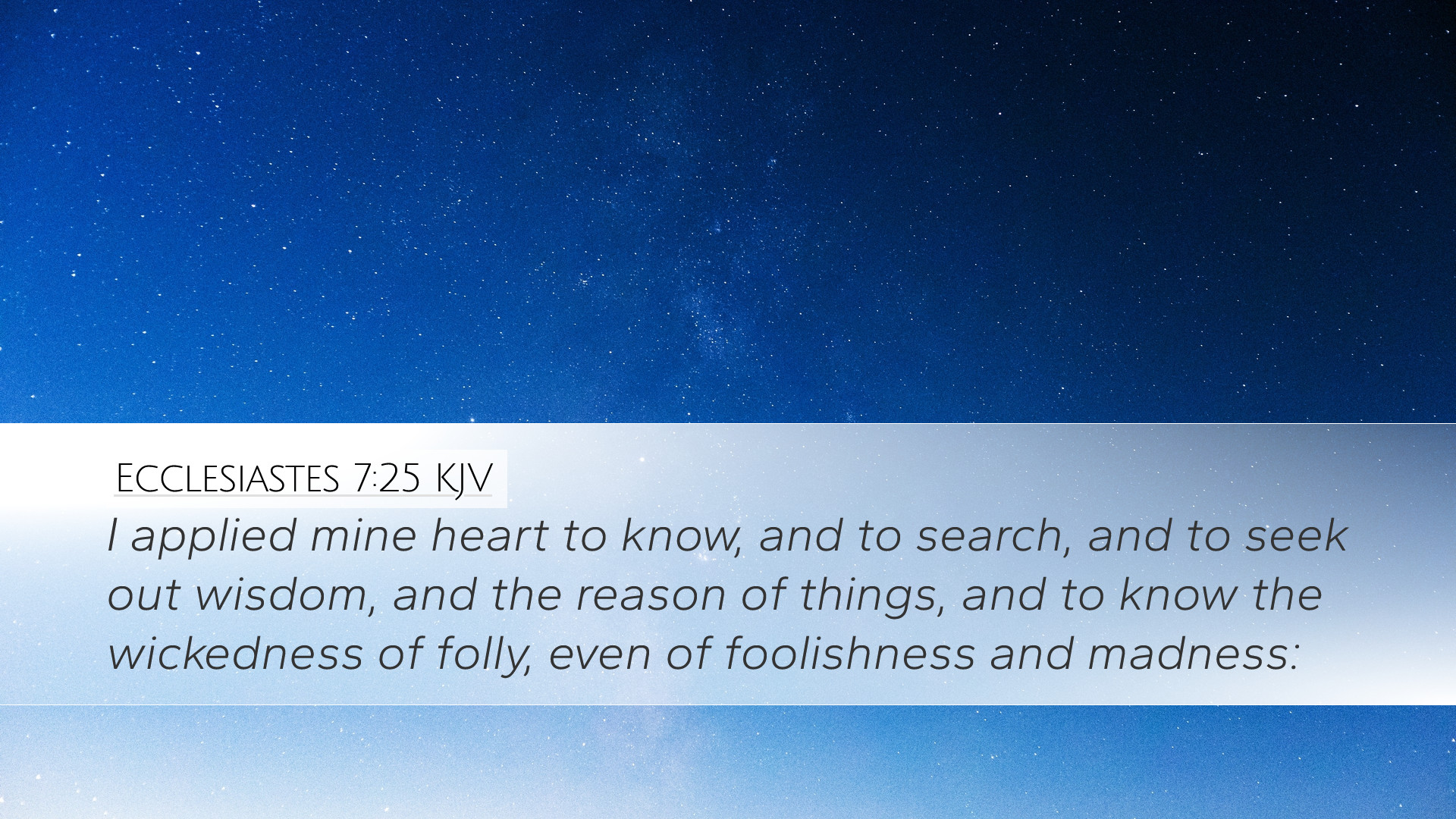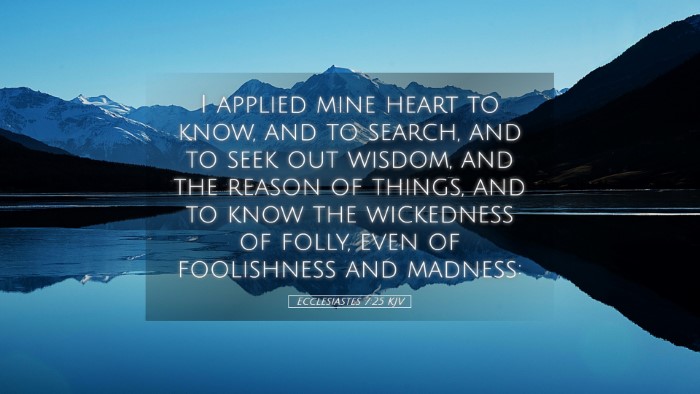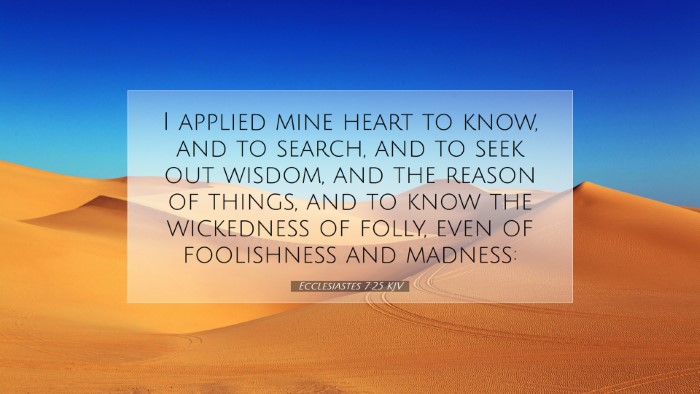Commentary on Ecclesiastes 7:25
Ecclesiastes 7:25: "I applied my heart to know, and to search, and to seek out wisdom, and the reason of things, and to know the wickedness of folly, even of foolishness and madness."
Introduction
The book of Ecclesiastes is often regarded as a profound reflection on the meaning of life, the pursuit of wisdom, and the recognition of the limits of human understanding. The ventures of the Preacher, traditionally identified with Solomon, reveal a deep quest for truth amidst the obscurities of existence. In Ecclesiastes 7:25, we encounter a pivotal moment in this exploration, where wisdom, folly, and the human condition intersect.
The Quest for Wisdom
The verse begins with the Preacher asserting his commitment to understanding. The repetition of "know," "search," and "seek out" emphasizes the diligent pursuit of wisdom. According to Matthew Henry, this indicates "an active and thorough engagement with the principles of wisdom and the complexities of life." The intention is not merely academic but deeply personal, suggesting an earnest heart devoted to uncovering the realities around him.
Albert Barnes elaborates on the significance of this quest by pointing out that the Preacher seeks not only to amass knowledge but to grasp the underlying reasons of existence. "The reason of things" denotes an investigation into causality and purpose, challenging readers to reflect on their own inquiries into life’s deeper meanings.
Folly and Its Madness
The latter part of the verse introduces a contrasting theme: the acknowledgment of folly, described as “wickedness” and “madness.” This juxtaposition serves a dual purpose: it illuminates the folly inherent in human pursuits divorced from divine wisdom and magnifies the need for discernment in all areas of life.
Adam Clarke emphasizes that understanding folly is crucial for anyone seeking true wisdom. He notes that “to be wise about folly is a part of wisdom's repertoire,” suggesting that engaging with folly equips one to navigate life's complexity wisely. In this light, the Preacher’s reflection becomes a cautionary tale against the perils of ignorance and the naïve blindness to life’s absurdities.
The Nature of Wisdom
Wisdom is depicted as both a safeguard and a beacon. It is a portion of life's essence that can lead one through turbulent waters, as noted by Matthew Henry. Thus, to search for wisdom helps one attain a deeper spiritual and intellectual understanding that transcends mere knowledge. It invites the reader to appreciate wisdom not as a checklist of facts, but as a living and dynamic engagement with God's creation.
- Wisdom's Protection: The pursuit of wisdom guards against folly and its outcomes.
- Wisdom's Depth: It seeks to understand life from a holistic perspective, considering all facets, including the darker aspects, as highlighted by the Preacher.
- Wisdom's Purpose: To thrive spiritually and existentially, discernment is necessary to navigate the moral and ethical landscapes of life.
Significance for Today's Readers
For pastors, students, theologians, and scholars, Ecclesiastes 7:25 serves as a poignant reminder of the ongoing quest for understanding. In a world cluttered with competing voices and values, the pursuit of wisdom remains as relevant as ever.
Embracing the earnestness embodied by the Preacher can guide contemporary believers toward a deeper relationship with God and a clearer comprehension of their existence.
Theological Reflections
Albert Barnes highlights the theological implications of this verse: God's wisdom transcends human folly. Engaging rigorously with scripture and divine truth invites believers to examine their lives critically and vulnerably. He emphasizes the importance of seeking truth through prayer and contemplation, suggesting that such earnest seeking leads to divine revelation.
Conclusion
Ecclesiastes 7:25 compels readers to ponder the depth of their knowledge and the seriousness of their commitments to both wisdom and folly.
In a culture often characterized by superficial understanding and distraction, the Preacher's admonition rings with clarity and urgency. To "apply the heart" fosters a deep-seated challenge to pursue not just information but transformative wisdom that can illuminate our paths and deliver us from the madness of folly.
This verse, and the reflections upon it, invite all who ponder its meaning to engage actively with the complexities of life while relying upon the greater wisdom granted by God, thereby finding meaning that transcends the inherent vanity of worldly pursuits.


